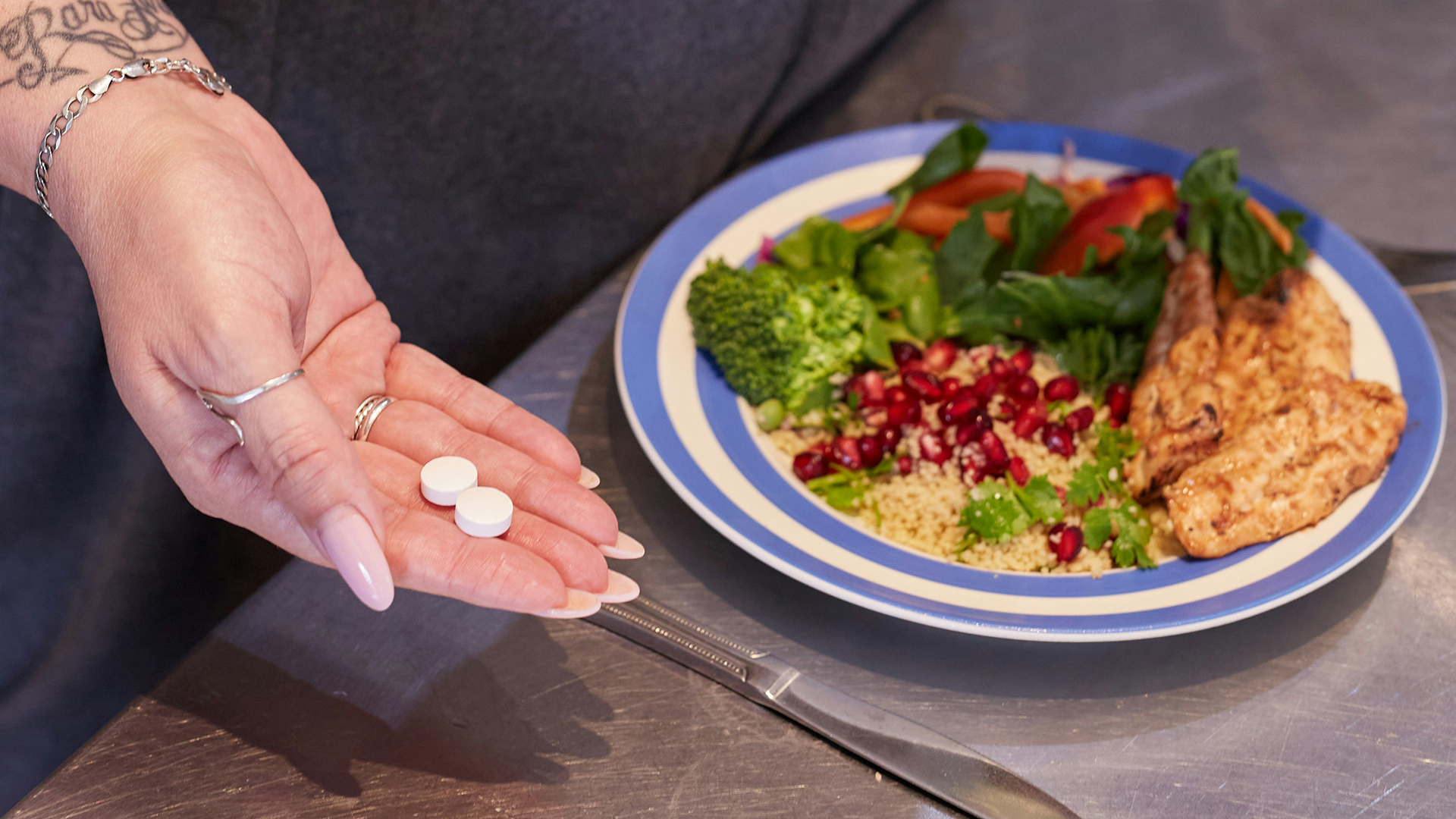Review the dosage instructions on any given prescription label, and you will see an indication of whether that medication should be taken with food or on an empty stomach. But isn’t taking the medication the important thing? Won’t it do its job either way? Unfortunately, that is not the case.
The reasoning behind the do’s and don’ts of food with medication is about how the medication is absorbed by, and interacts with, the body. That’s why it’s important to follow dosage instructions exactly as they are written on your prescription label.
Here are a few types of medications that should be taken with food:
Corticosteroids
These inflammation-lowering steroidal medications cause acid to be released in the stomach, which can lead to stomach upset. Food can help neutralize the acid and reduce upset.
NSAIDs
These are non-steroidal anti-inflammatory drugs like ibuprofen and naproxen, which can irritate or damage the stomach lining. Taking these medications with food or milk can help reduce stomach irritation.
Antibiotics
Ampicillin is an antibiotic that must be taken on an empty stomach. Many other antibiotics, however, should be taken with food to avoid nausea and stomach pain and to aid with absorption.
Sulfonylureas
These are medications for Type 2 diabetes. They must be taken with food because when taken on an empty stomach, these medications risk dropping your blood glucose too low.
Fast-Acting Insulin
Also used to treat diabetes, fast-acting insulin helps the body control blood glucose levels and should be taken right before meals to avoid low blood sugar.
Antacids
Taking antacids with food can help prevent heartburn by neutralizing the acid that’s been triggered by food. Taking antacids one hour after a meal can more than double the length of effectiveness versus taking them on an empty stomach.
Not All Foods Are Equally Helpful!
It’s best to avoid acidic foods and drinks if you’re taking medication with food to prevent stomach upset. Fatty, sugary and spicy foods should also be avoided.
There are even foods that worsen the side effects of certain medications. If you’re taking corticosteroids, you’ll want to avoid salty or sugary foods, which can worsen the side effects of those medications.
Grapefruit juice can change a medication’s speed of absorption, so if you’re a big grapefruit juice fan, be sure to ask your doctor or pharmacist about its potential interactions with your medications.
Read the Label and Ask Your Doctor or Pharmacist
The bottom line is that every medication interacts with food differently—some in riskier ways than others. Be sure to read instructions and usage directions carefully.
It is never a bad idea to speak with your doctor or pharmacist to go over your current medications to determine which should be taken with food, without food, and the timing around meals. This will help you create a dosing schedule that keeps you safe and your medications working as well as they should.

